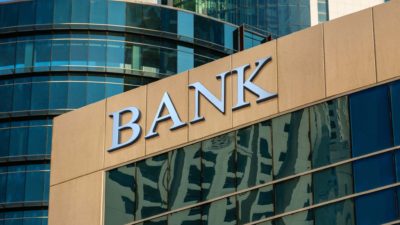Even before the recent failures of US banks and Credit Suisse, the team at DNR Capital collectively felt funny in their tummy about the industry.
For them, even the Australian banks, which are well-shielded from the chaos overseas, showed several red flags in their latest results.
"Firstly, reporting season also highlighted that the tailwind from higher interest rates now appears to be coming to an end, or at least the end is nigh," said DNR Capital Australian Equities Income Portfolio and Fund portfolio manager Scott Kelly.
"Commonwealth Bank of Australia (ASX: CBA)'s result in particular showed that monthly net interest margins may have actually peaked last October."
The second alarm bell was that home loan growth is slowing.
"[This] is a function of the uncertainty in the property market, and in response, banks pricing competition appears to be stepping up as well," said Kelly.
"We are already seeing the big banks offer discounts and attempt to match competitors in mortgages."
So many red flags for the banks
Since interest rates have become more palatable for deposit holders, competition in that area has really heated up.
"That will unwind some of the funding cost gains that the banks have benefited from over the last few years."
Moreover, cheap federal government capital lent out during the COVID-19 pandemic is all due to mature soon.
"The majority of this becomes due over the June, September, and December quarters this year. That'll need to be replaced with more expensive wholesale funding," Kelly said.
"Inflationary pressures will continue to put pressure on the cost base, and people still account for two-thirds of the bank's cost base, so that remains a significant headwind."
Another dark cloud is that bad debts are a genuine worry for banks for the first time in many years.
"Asset quality will come under pressure as consumers struggle. In our view, the risk of high bad debts is rising, and that could be a negative surprise for many."
Lastly, regulatory and political pressure could mount on the banks.
"There remains the likelihood of increased political scrutiny, particularly as consumers face increased challenges through higher cost of debt, broader increase in living expenses, and also the potential for unemployment."
Here's where to invest your money instead
So it would be no surprise to hear Kelly say that his team has reduced its exposure to the banking sector.
"Overall, we see better risk-return opportunities elsewhere and more attractive dividend yields on offer elsewhere, particularly companies that are growing their dollar income over time."
Then where are they putting their money instead?
"Relative to the banks, we prefer the insurers and we think they provide a meaningful offset to our underweight bank's position."
He added that specifically the DNR team prefers QBE Insurance Group Ltd (ASX: QBE) and Suncorp Group Ltd (ASX: SUN).
"Operationally, domestic and international premium rate increases continue to be strong. We are seeing moderate volume growth and benign customer churn," said Kelly.
"Both also benefit from higher interest rates through higher yields on their investment books."
Both those insurance stocks are going for cheap, too.
"They're low double-digit PE multiples and attractive dividend yields of over 6%," Kelly said.
"In addition, we expect balance sheets to provide capital management opportunities on a two to three year view."







